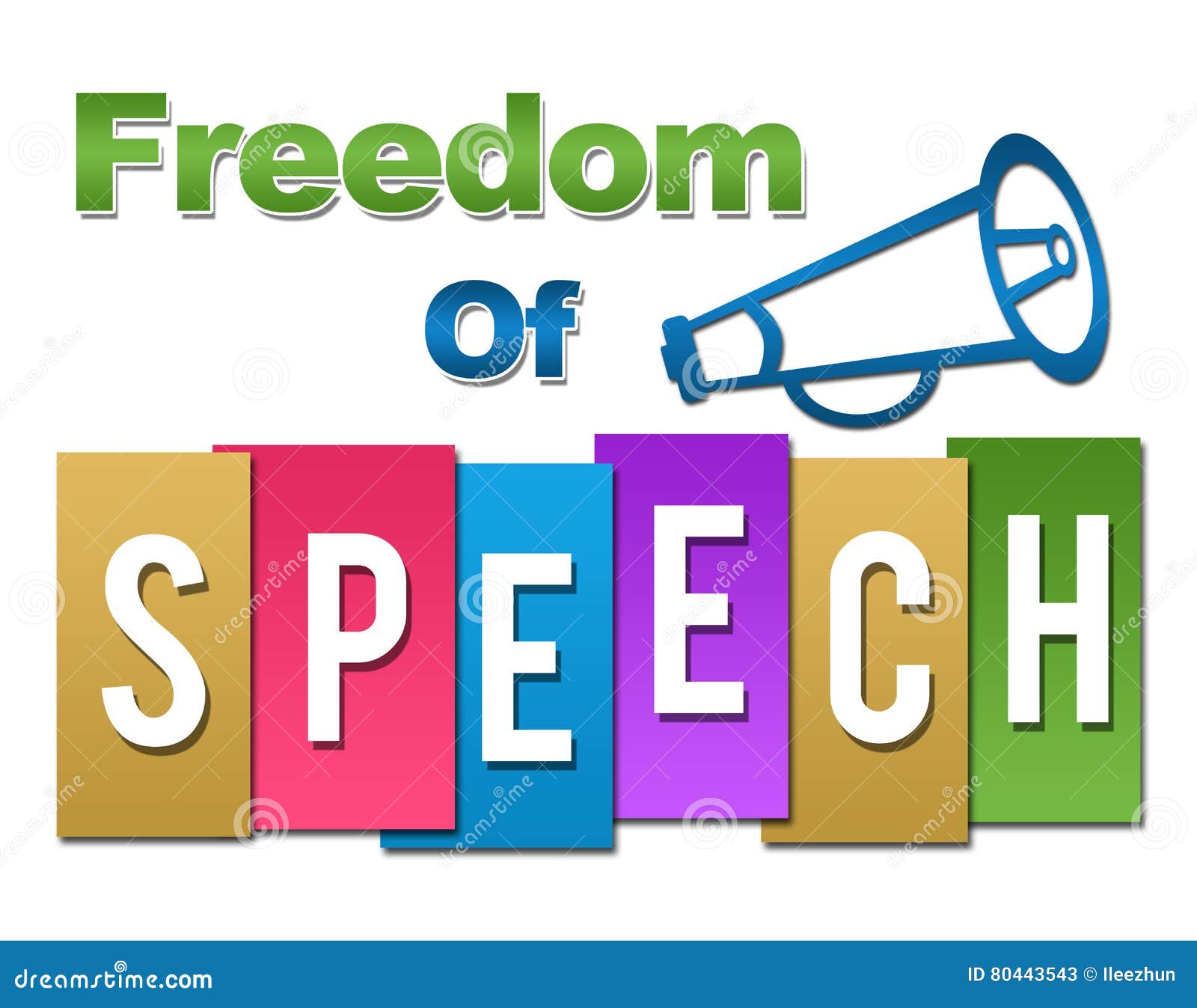

Or in part by bias or prejudice that is meant to intimidate, demean, mock, degrade, Such as: “ All views expressed here represent exclusively my own views and not those of my employer” helps to clarify that an employee is speaking as a citizen rather than as a representativeīias is a preconceived negative opinion or attitude about a group of people who possessĬommon physical characteristics or cultural experiencesĪ bias related incident is any conduct, speech, or expression, motivated in whole To indicate that they are not communicating for the University.
#Freedom of speech professional#
To be accurate, exercise appropriate restraint, show respect for the opinions of others,īe aware of the limits of their professional expertise. Hence, members of the Michigan Tech community should at all times strive Remember that the public may judge their profession and their institution by their

#Freedom of speech free#
When they speak or write asĬitizens, they are free from institutional censorship or discipline, but they must University educators are citizens and also employees.Related to their subject-area expertise, but are advised not to portray themselvesĪs experts on matters that fall outside of their subject. Faculty are entitled to freedom in the classroom to provide instruction on topics.A successful academic community depends on a balance of teaching and scholarship īoth suffer when the freedom to pursue either in a fully open manner is compromised.

Question, without fear of reprisal, the positions and points of view espoused by faculty Standards in their disciplines are guaranteed. Rights of faculty members to conduct scholarly activities in accordance with professional But States can also use alternative tools – such as education and promoting counter-messages – to address the whole spectrum of hateful expression, both on and offline.Michigan Technological University is an institution where both students and facultyĪre free to pursue scholarship in an open environment without fear of reprisal. Determining when the potential of harm is high enough to justify prohibiting speech is still the subject of much debate. Alongside the relevant international human rights law provisions, the UN Rabat Plan of Action provides key guidance to States on the difference between freedom of expression and “incitement” (to discrimination, hostility and violence), which is prohibited under criminal law. Therefore, any restrictions must be an exception and seek to prevent harm and ensure equality or the public participation of all. To counter hate speech, the United Nations supports more positive speech and upholds respect for freedom of expression as the norm. Therefore, legislative efforts to regulate free expression unsurprisingly raise concerns that attempts to curb hate speech may silence dissent and opposition. It is undeniable that digital media, including social media, have bolstered the right to seek, receive and impart information and ideas. These freedoms support other fundamental rights, such as to peaceful assembly, to participate in public affairs, and to freedom of religion.

The need to preserve freedom of expression from censorship by States or private corporations’ is often invoked to counter efforts to regulate hateful expression, in particular online.įreedom of opinion and expression are, indeed, cornerstones of human rights and pillars of free and democratic societies.


 0 kommentar(er)
0 kommentar(er)
